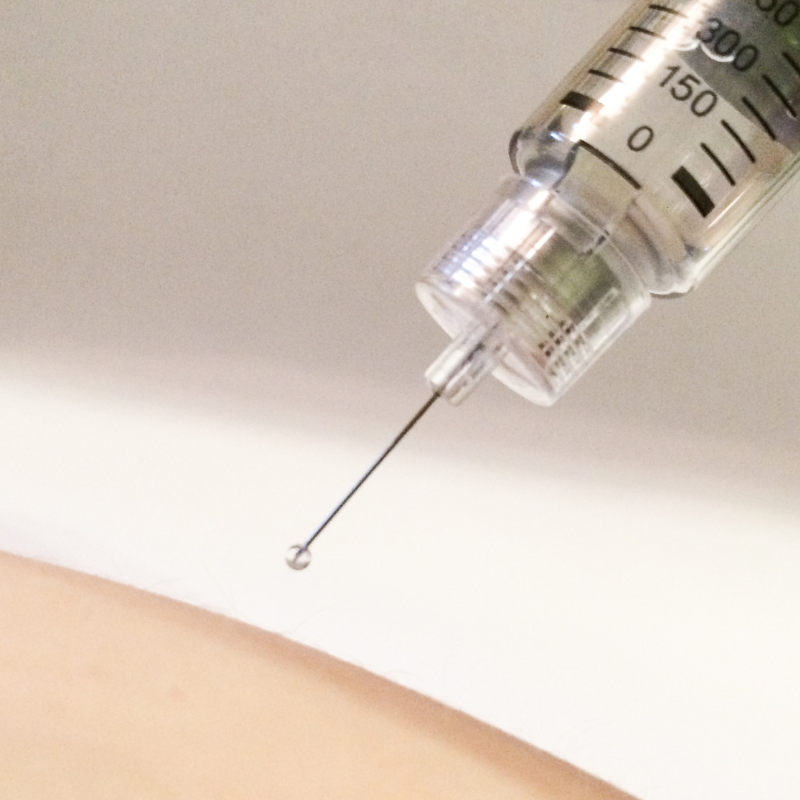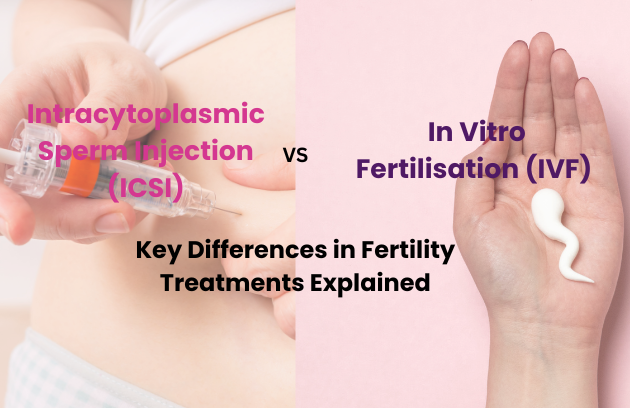Table of Contents
Infertility treatments have advanced tremendously, providing new hope to couples facing difficulties conceiving. Two of the most popular assisted reproductive technologies (ART) are Intracytoplasmic Sperm Injection (ICSI) and In Vitro Fertilization (IVF). While often used interchangeably, ICSI and IVF are distinct techniques with different approaches and success rates based on specific infertility challenges. Understanding the difference between ICSI and IVF treatment can help couples choose the right approach based on their needs and fertility goals.
This article delves into the key differences between ICSI and IVF, explaining how each process works, when each method is used, and the specific benefits of each treatment.
1. What is In Vitro Fertilization (IVF)?
In Vitro Fertilization (IVF) is one of the most widely used fertility treatments for both male and female infertility. IVF involves stimulating the woman’s ovaries to produce multiple eggs, which are then retrieved and combined with sperm in a lab dish. Fertilization occurs naturally in the dish, allowing sperm to penetrate the egg on its own.
- Egg and Sperm Combination: During IVF, eggs and sperm are placed together in a petri dish, allowing fertilization to occur as it would naturally.
- Ideal Candidates: IVF is used for both male and female infertility issues, including cases where the female has blocked fallopian tubes, ovulation disorders, or endometriosis.
- Success Factors: IVF success depends on factors such as age, egg and sperm quality, and any underlying medical conditions.
2. What is Intracytoplasmic Sperm Injection (ICSI)?
Intracytoplasmic Sperm Injection (ICSI) is a specialized form of IVF designed for cases of male infertility. During ICSI, a single, healthy sperm is selected and injected directly into the cytoplasm of a mature egg using a microscopic needle. This process bypasses the need for sperm to penetrate the egg on its own, making it highly effective for couples dealing with issues like low sperm count or poor sperm motility.
- Direct Sperm Injection: Unlike conventional IVF, where sperm and egg meet naturally, ICSI directly introduces a single sperm into the egg.
- Ideal Candidates: ICSI is often chosen for couples where male infertility is the primary issue, such as cases with low sperm count, low motility, or poor morphology.
- Success Factors: The success of ICSI depends on the quality of the eggs and the skill of the embryologist performing the procedure.
3. Major Differences Between ICSI and IVF
Let’s break down the primary differences between ICSI and IVF treatment:
3.1 Sperm Requirement
- ICSI: Only a single, high-quality sperm is required, making it suitable for men with very low sperm counts or other sperm abnormalities.
- IVF: Requires a larger quantity of healthy sperm to facilitate natural fertilization in the lab dish.
3.2 Fertilization Method
- ICSI: Involves injecting a single sperm directly into the egg, which means fertilization is almost guaranteed if a healthy sperm is used.
- IVF: Sperm and eggs are combined in a petri dish, allowing fertilization to happen naturally without interference.
3.3 Ideal Candidates
- ICSI: Best suited for male infertility cases, especially where there are sperm abnormalities, low motility, or previous fertilization failure with IVF.
- IVF: Suitable for both male and female infertility and often the first-line treatment for couples with issues like blocked fallopian tubes, ovulation problems, or unexplained infertility.
3.4 Success Rates and Costs
- ICSI: Known for its high fertilization rates, especially in cases of male infertility, but often comes at a higher cost due to the advanced technology and specialized procedure involved.
- IVF: More cost-effective for general infertility and often successful in cases without severe male infertility.
4. Benefits of ICSI Treatment

ICSI has specific advantages that make it a highly effective solution for couples facing severe male infertility issues. Some benefits include:
- High Fertilization Rate: ICSI has a high success rate for fertilization, especially for couples with low sperm counts or poor sperm motility.
- Suitable for Severe Male Infertility: Allows fertilization even when very few sperm are available or when sperm cannot move effectively.
- Overcomes Fertilization Barriers: Bypasses natural fertilization barriers, making conception possible even when conventional IVF has previously failed.
- Options for Sperm Retrieval: ICSI can use sperm retrieved through procedures such as testicular sperm extraction (TESE) or epididymal sperm aspiration, which may be necessary if sperm cannot be ejaculated naturally.
5. Benefits of IVF Treatment
IVF remains one of the most versatile and widely used fertility treatments, suitable for various infertility cases. Key benefits include:
- Addresses Multiple Infertility Causes: IVF is effective for female infertility issues such as blocked tubes, endometriosis, or ovulation disorders.
- Higher Natural Fertilization Rate: With IVF, fertilization occurs naturally in the dish, which can lead to high-quality embryos.
- Good Option for Unexplained Infertility: IVF is an excellent starting point for couples with unexplained infertility, as it provides insight into potential fertilization issues.
- Accessible and Affordable: IVF is often more affordable and accessible than ICSI, making it a preferred first option for many couples.

6. When to Choose ICSI Over IVF
While both ICSI and IVF are effective, ICSI is recommended for specific cases where male infertility is a prominent factor. Situations where ICSI may be preferred over conventional IVF include:
- Previous IVF Failure: Couples who haven’t achieved fertilization with standard IVF may benefit from ICSI.
- Low Sperm Count: If sperm count is very low, ICSI’s single-sperm injection approach ensures that fertilization is possible.
- Sperm Morphology Issues: Poorly shaped sperm may struggle to fertilize an egg naturally, making ICSI an effective alternative.
- Azoospermia or Sperm Retrieval Cases: For men unable to produce sperm through ejaculation, ICSI allows the use of surgically extracted sperm.
7. Cost Differences Between ICSI and IVF
The cost of ICSI is generally higher than that of IVF due to the specialized equipment, lab procedures, and skilled expertise required for single-sperm injection. Factors influencing cost include:
- Advanced Equipment: ICSI requires specific microscopic and lab tools for handling and injecting individual sperm.
- Specialized Expertise: Skilled embryologists are needed to perform the precise steps involved in ICSI.
Laboratory Time: ICSI requires more lab time and careful handling of eggs and sperm, which increases the cost compared to IVF.
8. Success Rates for ICSI and IVF
Success rates vary between ICSI and IVF based on factors like the age of the woman, quality of eggs and sperm, and underlying health conditions. Generally:
- ICSI Success Rates: ICSI often has higher fertilization success in cases of male infertility due to its direct approach, making it a powerful solution when sperm quality is low.
- IVF Success Rates: IVF success rates are comparable to ICSI in cases without severe male infertility and can be highly successful for female infertility causes.
Conclusion
Understanding the difference between ICSI and IVF treatment can help couples make the best choice for their specific infertility challenges. While both methods provide paths to pregnancy, ICSI’s single-sperm injection method is particularly suited to overcoming severe male infertility, whereas IVF is a versatile option for various infertility issues. Consulting with a fertility specialist is essential to determine which treatment aligns with your needs, financial resources, and fertility goals. With the right choice, both ICSI and IVF offer hope and possibilities for couples on the journey to parenthood.

